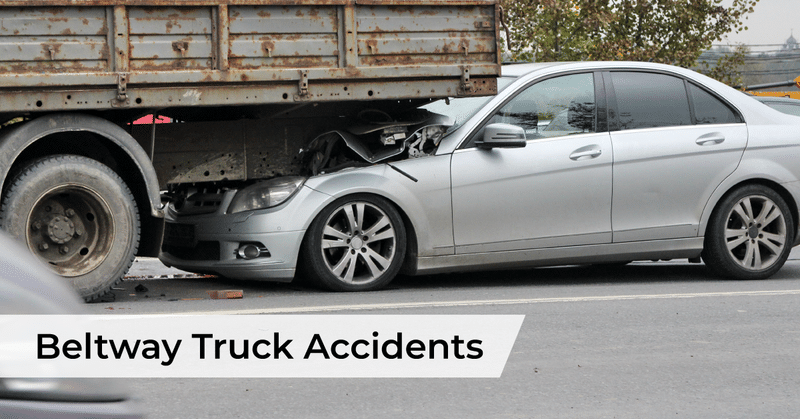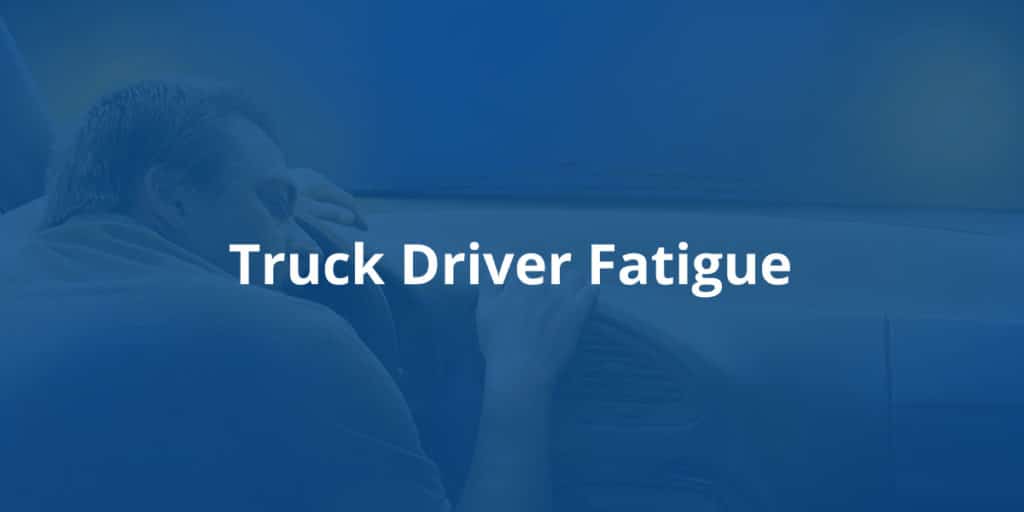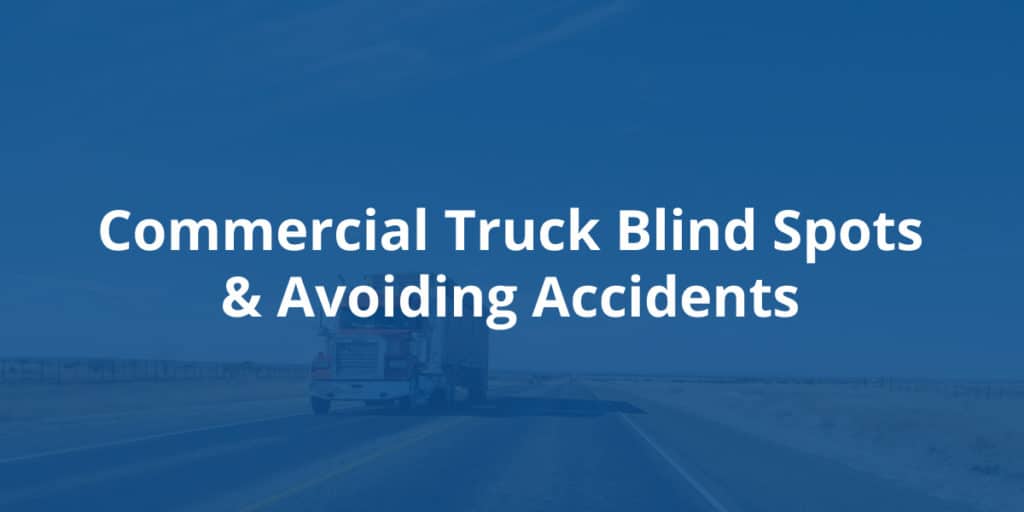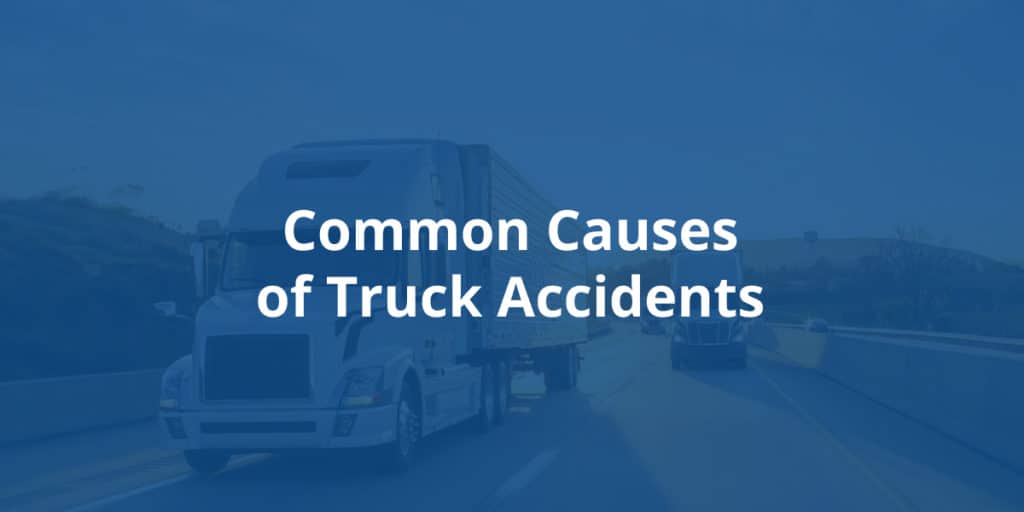









"Thank you so much for all your guidance and support during this difficult period in my life.I Will Never Forget Your Compassionate Professionalism And Unparalleled Legal Expertise." -Zachary P..
"From the 1st meeting, he invested so much time & interest. He was so helpful & reassuring. We won in court." -Ina Lerner.
"They’re the best. You will never lose with them" -Ana Thomas.
"Their services were honest with integrity. I always walked out their office with a smile." -Damilola Adeyale.
"I had a tough case in the beginning but it ended wonderfully and I grossed more than I expected. I recommend each & everyone who has an accident or any other legal matters, to please call Duboff & Assoc." -Terrence Edwards.
"The service was great and very understanding and straight forward all the way to the end." -Kevin Hines.
"I had a great experience working with Duboff & Associates through my legal case. I was involved in a car accident by a tuck tractor at no fault of mine. Mr. Duboff was such pleasant person that he guided me through the process and through by medical care." -Mohamed A..
"We are most grateful to you personally as well as your entire staff at DuBoff & Associates. Had it not been for your legal expertise, our opponents would have prevailed. The series of meetings we had–especially on Sundays to accommodate our individual schedules and our witnesses–deserve special mention." -Isaac Vodi, Riteway Driving School.
"I will not hesitate to refer them to my friends and I have done it before. Again I am very pleased for the good service they provided me. I will always come back for future incident." -Read the full testimonial.
"You have been great to work with, you are a top notch attorney in my opinion. This is my first experience and hopefully my last but I appreciate your openness, patience, and honesty in guiding me through the process. You always made me feel you were working on my behalf to get the best settlement possible." -Larry McClain.

Amazon trucks are a common sight across the country. No matter where you live in Maryland, Virginia, or DC, you’ll see them constantly darting in and out of neighborhoods and business districts.
Recent years have seen even more Amazon trucks on the road. In the fall of 2018, Amazon purchased thousands of delivery vans and leased them to independent contractors (delivery service partners) who invested as little as $10,000 to earn profits of over $4 million a year. When the pandemic began, volume increased explosively as more and more shopping moved online. Today, the online shopping giant ships approximately 19 orders per second.
Although Amazon does train and monitor their drivers, human error can still cause serious and even fatal accidents. If it happens to you, you need and deserve a truck accident lawyer who has the experience, resources, and determination to fight for your compensation. At DuBoff & Associates, Chartered, we have a reputation for excellence in truck crash cases and will protect your rights in an accident claim.
An Amazon truck delivery accident can result from a number of reasons. These causes include but may not be limited to:
Commercial truck drivers are required to follow certain laws regarding driving times and rest periods, but these rules don’t apply to most Amazon drivers. This can lead to drivers working in unsafe conditions, which can result in potentially fatal accidents.
When you’ve been injured in a truck delivery accident involving an Amazon vehicle, you might wonder whether or not you can sue Amazon directly.
Truck drivers delivering cargo for Amazon are often independent contractors hired by Amazon Delivery Partner Services, which is a division of Amazon Logistics. They are not direct employees of the company. In a truck accident case against an Amazon delivery truck, this difference can have a huge impact on who you sue and how you receive compensation.
In most cases, you cannot file a lawsuit directly against Amazon after an accident involving a delivery vehicle. However, Amazon requires all of its contractors to carry liability insurance known as Amazon Flex Insurance coverage, which covers up to $1 million in injuries and damages suffered by third parties.
However, in order for you to seek compensation under this policy, the Amazon delivery driver must be on the clock. If the accident occurs after the driver is off duty, Amazon Flex insurance will not cover the damages and you will have to sue the driver directly.
If you’ve been struck by an Amazon delivery truck or van, take the following steps to strengthen your personal injury claim.
If you’ve been in an auto accident, the first thing you need to do is call 911 and request the police. They will come and, after inspecting the scene and taking statements from everyone involved, create a detailed report. This report is crucial for seeking compensation from the at-fault driver’s insurer, so ask the police to send you a copy.
If the driver remained at the scene, get their contact and insurance information. Don’t say anything that could be construed as accepting blame, such as “I’m so sorry, I didn’t see you!” Confine your conversation to information exchange.
If anyone witnessed the accident, talk to them and get their contact information too. Their statements can serve as evidence when you go to file your claim.
The police will take photos of the accident scene when they arrive, but you should also take pictures if you can. Photograph your vehicle, the scene of the accident, and any injuries suffered by you or your passengers.
After an accident, you should always seek medical attention, even if you do not believe you have been injured. Often, the extent of a person’s injuries isn’t evident until hours or days after the accident. Your health care team will document your injuries and provide evidence for your compensation claim.
You stand the best chance of getting the compensation you need by reaching out to a truck accident lawyer as soon as possible. Claims involving Amazon delivery vehicles can be extremely complicated and without legal representation, you could end up with a lot less money than you deserve.
In addition to collecting police and medical reports, your lawyer will take steps to preserve vital evidence related to the accident:
Accident victims who hire a lawyer tend to get better results than those who don’t. You and your family deserve an advocate who isn’t afraid to take on Amazon, its insurers, and their counsel to get the money you need to recover.
How much you receive in an Amazon truck delivery settlement will depend on several factors. In the end, you should be compensated for all expenses incurred in the accident, including both your recovery costs and any lost income, as well as lost income and decreased earning ability.
Your truck accident lawyer will use your medical reports, previous pay stubs, treatment invoices, and professional opinions from medical and vocational experts to assign a value to your claim. They will then negotiate for this amount and take your case to court if the insurer refuses to make a fair settlement offer.
If you’ve been severely injured in a truck delivery accident, facing a large corporation like Amazon can be intimidating and overwhelming. The skilled attorneys at DuBoff & Associates, Chartered are here to help you navigate the process and ensure that you receive the compensation you need to get your life back on track. Call us today at 866.210.6720 for a free consultation.
Related:
What to Do Immediately After a Tractor-Trailer Accident: A Step-by-Step Guide

The Capital Beltway is named for the two major highways that circle Washington, DC. Both the I-495 and I-95 loop around the city and extend into several suburbs in Maryland and Virginia. This 64-mile stretch consists of an Inner and Outer loop: those driving on the Outer Loop will see Washington, DC on their left while motorists on the Inner Loop will see it on their right.
Being a major transportation link between several communities, traffic volumes on the Beltway are often as high as 225,000 regular and commercial vehicles per day. Traffic congestion, combined with driver error and challenging road configurations, frequently leads to accidents. In fact, there is an average of 260 documented collisions on the Beltway each year.
There are several reasons why the Beltway has a reputation for being so dangerous.
Due to the sheer volume of daily traffic, rear-end collisions are especially common; according to the Federal Highway Administration, around 44% of the accidents that occur along the Beltway are rear-end crashes, suggesting that too many motorists (truckers included) are tailgating.
The FHA also found that:
In March 2021, a tractor-trailer containing more than 20 tons of frozen fish crashed on the Outer Loop in Tysons Corner near the Leesburg Pike exit. It happened during the afternoon rush hour and blocked three out of four lanes of traffic.
Despite the congestion (or perhaps because of it), truckers and other motorists persist in speeding along this already dangerous thoroughfare. Earlier this year, the Maryland Department of Transportation began using friction abrasion treatments to slow down drivers in certain stretches of the Beltway, specifically in Montgomery County between Bradley Boulevard and Connecticut Avenue.
Another issue is distracted driving, especially along the roadway between Georgia Avenue and Rockville Pike, where an especially eye-catching Mormon temple can be seen. Even when this architectural wonder is not in view, drivers can be equally absorbed by text messages, emails, and phone calls.
Windstorms are common in the DC area during springtime. Dangerous wind gusts can send debris, power lines, and even large trees crashing onto the Beltway, setting the stage for a serious accident even when traffic is not congested. The FHA also noted that one-third of Beltway crashes occur on wet, icy, or snow-covered pavement.
Certain points along the Beltway are known as accident hotspots. One of the biggest ones is located at the Outer Loop as you approach the split onto the I-270. You need to be prepared to quickly change lanes when you’re deciding to stay on the I-495 or turn onto the 270.
With large commercial vehicles like trucks and tractor-trailers, it’s easy to lose control during such a rapid lane shift, resulting in a major accident. In September 2020, the Maryland State Police reported that 36 commercial vehicles had crashed at or near this site since the pandemic began. Incidents included jack-knifed tractor-trailers and trailers breaking loose and rolling into the roadway.
That same month, a driver lost control of his tractor-trailer as he rounded a left curve and struck a concrete barrier. The trailer, which contained a cargo of cabinets, overturned and fell onto the I-270 below. Fortunately, no one was injured but the Outer Loop of I-495 was shut down at Old Georgetown Road and the I-270’s two right lanes were closed for hours. All it took was seconds for a major incident to occur.
Below are the top Beltway accident sites for 2018 based on the WTOP Traffic Center database.
Additional collisions were reported near I-270, Rockville Pike, River Road, and New Hampshire Avenue.
Accidents involving trucks are much more complex than those involving passenger cars, so victims should always contact a personal injury lawyer with experience handling truck accident claims. These types of accidents are more complicated for several reasons:
Investigating truck accidents requires a thorough understanding of the federal regulations that govern all aspects of the industry, including the records and reports truckers and motor carriers must maintain. At Duboff & Associates, Chtd., we have the experience and the resolve to pursue your claim against large corporations willing to spend a lot of money to shield themselves from liability.
Although certain sections of the Beltway can be difficult to navigate, these challenges aren’t the only cause of truck accidents. Other potential factors include:
After a truck accident on the Beltway, our attorneys act quickly to preserve records and other evidence. We will pursue a court order to access the wreckage and the truck’s Event Data Recorder, which would have recorded the vehicle’s operations just prior to the collision. With especially complex accidents, we may seek assistance from collision reconstruction specialists who can accurately identify how and why the accident took place.
Injuries from truck accidents can be catastrophic. When a person survives a crash, they are often left with horrific injuries that can take years or decades to heal. Common truck accident injuries include:
According to the Insurance Institute for Highway Safety (IIHS), truck accidents are much more likely to kill someone in a passenger vehicle than a crash with another car. If someone you love dies from injuries sustained in a Beltway truck accident, we will seek the compensation necessary for your family to try to move forward.
Our Maryland Beltway accident attorneys work tirelessly to determine all of your costs and losses in connection with the accident. We may seek compensation for:
Once all liable parties have been identified, we file every possible insurance claim to obtain full compensation for you. By preparing solid cases, we negotiate with insurers from a position of strength. When insurers refuse to offer a settlement that meets our clients’ needs, we are ready to present a convincing argument in court.
When another party’s negligence leaves you injured and creates a financial burden for you, our skilled truck accident lawyers will assertively pursue the fair outcome that you deserve.
Accidents involving trucks can result in life-altering injuries. If it happens to you, you need to work with a personal injury attorney who understands state and federal trucking laws knows how to investigate the circumstances of the accident, and will demand compensation and justice from those responsible for your injuries.
At Duboff & Associates, Chtd., we know how quickly trucking companies move to protect themselves from liability after an accident. Our truck accident lawyers have years of experience standing up to commercial carriers and their insurers after accidents in Maryland, Washington, DC, and Virginia. We will investigate your case and negotiate with insurers on your behalf so you receive the maximum compensation you are entitled to. To schedule a free consultation, contact us today.

A Federal Motor Carrier Safety Administration (FMCSA) study has shown that truck driver fatigue is one of the top leading causes of all collisions involving commercial trucks, and this study, of course, indicates that tired driving doesn’t always cause crashes but that it does certainly increase the overall likelihood of accident occurrences.
Although the FMCSA has implemented several different fatigue-related regulations and has also issued driving tips for avoiding driver fatigue, there are still grave issues surrounding the commercial trucking industry in terms of unrealistic scheduling expectations. Forcing commercial truck drivers to meet tight deadlines inevitably results in both fatigued driving and speeding, which combined together is a very dangerous duo.
Our team of personal injury specialists and truck accident attorneys has been serving the Maryland, Virginia, and D.C. areas for over 30 years, and our experience has helped us to become experts in the field of commercial truck accident litigation. We fully understand how catastrophic and devastating these types of injuries can be on the accident victim and their family, which is why we always remain vigilant for each of our clients in terms of collaborating experts and circumstantial evidence to provide you with the very best legal strategy possible.
If you or a family member has suffered an injury as a result of a truck driver’s fatigue, or any other negligent behavior, contact us for a free consultation so we can begin to review the facts surrounding your accident and formulate the beginnings of your legal recourse.
Driver fatigue is rather simply the combination of driving and general sleepiness, and the risks associated with commercial trucks and fatigued driving are staggering. According to FMCSA’s study, about 13 percent of the annual truck accidents within the United States occur due to driver fatigue.
The CDC has also collected data estimating that driver fatigue in 2013 was responsible for 72,000 collisions, around 44,000 injuries, and about 800 deaths. The CDC has also indicated that commercial truck drivers are much more likely than the general passenger vehicle population to become fatigued while driving, although the increased rate of likelihood is relatively unknown.
The FMCSA has mandated hours of service (HOS) regulations that all commercial truck drivers are required to follow, and these HOS rules are laws designed to combat truck driver fatigue by reducing the chances of tired truckers being on the road.
There’s an entire FMCSA guidebook to following these HOS requirements, and here we’re going to breakdown some of the important aspects of these guidelines:
14 hours is sometimes thought of as the “daily limit”, but this isn’t based upon a 24-hour period. The confusion with this regulation may be part of what leads to fatigued drivers remaining out on the road illegally.
Truck drivers are allowed to an overall period of 14 consecutive hours, but they’re only allowed to drive up to 11 hours of those 14 hours until they take an off-duty break for 10+ hours. This 14-hour window begins the moment a driver starts to work, so it doesn’t just include driving. Lunch breaks and other off-duty time doesn’t stop this 14-hour window clock, and once that 14-hour window has ended drivers must then take at least a 10-hour break before getting behind the wheel again.
As mentioned in the previous section, a truck driver can only drive for up to 11 hours within their allotted 14-hour work window. It’s also important to note that driving isn’t permitted if over 8 hours have passed since a trucker’s last 30-minute break.
All truck drivers are required to take rest breaks of at least 30 minutes if they’ve been working for eight consecutive hours. This break includes any meal times.
This duty limit is many times referred to as the “weekly limit”, but this hour limit is not based upon any given workweek like most other jobs. This limit is based upon a “rolling” seven-day period, which means that the oldest day within a given seven-day stretch will drop off at the end of each workday in order to continuously calculate a truck driver’s on-duty hours for their past seven workdays.
This is important because many truck drivers will pack in their “weekly” hours in order to meet specific delivery deadlines, but each day consists of a specific drop off and subsequent addition of work hours in order for commercial truck drivers to comply with their seven-day work periods.
In order for a commercial truck driver to restart their 60 or 70-hour duty limit clock, they’ll have to take 34+ consecutive off-duty hours.
The CDC has stated that a lack of restful sleep is one of the most common causes of fatigued driving, but fatigued driving can also occur when someone is working a night shift, using alcohol and/or drugs, or is undiagnosed with a sleeping disorder.
Falling asleep at the wheel is obviously extremely dangerous, and fatigued driving can also have profound effects on any driver’s ability to maneuver a vehicle. These effects are only compounded for commercial truck drivers.
Fatigued driving can result in the following:
If an individual becomes tired while behind the wheel, there isn’t much they can do to prevent fatigue from impacting the quality of their driving. This is partly why it’s so important for commercial truck drivers to comply with HOS requirements, so they can ensure they’re getting the amount of rest they need.
The following are some common signs of fatigued driving that you can watch out for while you’re behind the wheel:
A preservation evidence letter is a legal document sent to the trucking company or other involved parties, requesting them to retain all relevant evidence related to the accident. This may include the truck driver’s hours of service logs, vehicle maintenance records, and any electronic data from the truck itself.
We know how devastating truck accident injuries can be, and how difficult it is to prove a liability within these types of accident cases. You’re always going to require the assistance of an experienced legal team no matter what type of accident you’re involved within, and our team of truck accident attorneys is here to support you or your loved one when it comes to successfully developing a settlement or lawsuit that covers all of the sustained damages.
At DuBoff & Associates, CHTD., we put everything into each and every one of our clients’ cases. So if you or a loved one was injured in an accident involving a commercial truck driver and potential driver fatigue, it’s crucial that you contact us for a free consultation so we can review the facts and help you devise a successful legal strategy towards obtaining your maximum, rightful compensation.

The Federal Motor Carrier Safety Administration (FMCSA) is an organization that protects commercial truck drivers and has helped build awareness of the many dangers associated with commercial truck blind spots over the past 25 years.
The FMCSA has been vigilant in educating drivers about no-zones associated with all commercial trucks, which are a truck’s large blind spots. Commercial truck blind spots are always significantly larger than any other passenger vehicle, and the FMSCA has estimated that about one-third of all motor vehicle collisions involving commercial trucks and passenger vehicles occur when a vehicle is within a commercial truck’s no-zone.
Our team is comprised of several truck accident attorneys who have helped countless accident victims in cases that involve commercial trucks, and these personal injury cases can many times be somewhat more complicated than other types of car accidents.
On this page, we’ll be discussing the exact locations of 18-wheeler blind spots, the common causes of blind spot accidents, the common associated injuries, liabilities and potential economic and non-economic damages that you may be entitled to. So if you or a loved one were involved in an accident involving a commercial truck, it’s crucial that you contact us for a free consultation so we can review the details of your accident and begin the necessary initial steps towards devising your very best legal strategy.
There are four main blind spots associated with commercial trucks, including the following:
These are a truck’s blind spots because it’s very difficult, if not impossible, for a commercial truck driver to see any vehicles within these areas. There is always due diligence involved for all truck drivers when it comes to checking their blind spots prior to any lane changing, turning or braking, but as we all know there are still countless accident situations in which truck drivers check their blind spots and still don’t see other nearby vehicles.
There are many different circumstances that lead to truck accidents involving a truck’s blind spots, but for the most part, these accidents typically are the result of a truck driver simply not seeing a smaller passenger vehicle when conducting a variety of roadway maneuvers. Some of the most common causes of blind spot truck accidents include the following:
There are many instances in which a truck driver will not see a vehicle within one of their blind spots and then instigate an underride collision (2017 Underride Act), rollover accident, sideswipe accident, or potentially run a passenger vehicle off the road.
All accidents involving commercial trucks carry significantly higher risks of property damage, serious injuries and potential fatalities because of the massive overall size of larger trucks. Some of the common injuries involved with commercial truck accidents include the following:
The liability within truck accidents involving blind spots is sometimes controversial, and this is primarily because defendants will argue that a passenger vehicle driver was at fault for the accident’s occurrence due to simply being within the truck’s blind spot. It’s true that a passenger vehicle driver will increase their overall odds of being involved in an accident with a truck driver when they remain within the truck’s no-zones, but being in a truck’s no-zone doesn’t necessarily equate to accident liability.
The burden of proof in terms of proving a truck driver’s negligence within these accident cases many times will be determinant upon proving whether or not the truck driver failed to check their mirrors and blind spots prior to making the particular roadway maneuver.
This is of course very difficult to prove without proper legal representation assisting you, which is why DuBoff & Associates is always here for you to utilize our expertise and overall reputation to establish a preponderance of the evidence in your favor.
It’s also important to understand how comparative negligence can create a shared liability within truck accidents involving blind spots. Maryland, Virginia and D.C. courts may find a truck driver defendant to be at fault for the overall occurrence of these types of accidents, but will still hold a plaintiff accident victim partially at fault too.
This is one of the most important reasons why hiring an experienced truck accident lawyer is so crucial to the success of your accident case. Insurance and trucking companies will try to come up with a whole variety of defense strategies, but we’ll be able to argue against these attacks and pursue your best outcome.
But when comparative negligence is applied to a personal injury lawsuit, a court will decipher a plaintiff’s overall percentage of fault. As long as a plaintiff is below 50% at-fault, they’ll be able to recover damages.
When you hire our team of attorneys to represent you within a personal injury lawsuit, we’ll be closely looking into the following damages that you may be entitled to:
There are also instances in which a truck accident instigates the death of a driver or passenger. When these extremely unfortunate accidents occur, the family members of the deceased accident victim can file a wrongful death lawsuit and potentially recover an array of economic and non-economic damages.
DuBoff & Associates, CHTD has over 50 years of combined experience when it comes to handling all sorts of personal injury lawsuits within the Maryland, Virginia, and D.C. areas.
Contact us online for a free consultation or call us at 301-495-3131 today to get in touch with one of our legal experts so we can review the facts of your accident and begin the initial steps towards you or your loved one’s legal recourse.

It’s always a very frightening experience to be involved in a truck accident of any type, and according to NOLO, there has been a 20% increase in truck accidents since 2000. This is partly because there are simply more trucks on America’s highways than ever before, and the accidents associated with tractor-trailers and other commercial vehicles are always very serious.
Our team of highly skilled personal injury attorneys has encountered countless truck accident cases, and throughout all of these cases, there have been reoccurring causations that ultimately lead to the collision and subsequent passenger vehicle injuries.
On this page, we’re going to discuss the common causes associated with truck accidents. By going through this information you’ll be able to better understand the necessary prevention methods for every time you get behind the wheel and legal information for you or your loved one’s case.
If you or a family member has suffered any kind of injury as a result of an accident involving a semi-truck or commercial vehicle, contact us for a free consultation so we can review the facts of your accident and collaborate with you on developing your best strategy for legal recourse.
The Federal Motor Carrier Safety Administration (FMCSA) conducted a comprehensive study revolving around the causation of truck accidents, and their number one cause was driver error. The study found that about 88% of truck-related collisions were caused by some form of error by the truck driver. The following factors have become known to play significant roles in truck driver error:
There are many forms of distracted driving, which we’ll detail below.
Driver fatigue does technically lead to many instances of truck driver error, but it’s a common cause of truck accidents that’s somewhat more complex than other driver error cases.
This is primarily because there are certain regulations and laws that many commercial truck drivers will break in terms of driving beyond a safe number of hours per day. All commercial truck drivers are required to take breaks throughout each day between their driving shifts, and they’re required a certain number of resting hours per day as well.
However, there are traffic delays and delivery deadlines that all truck drivers must account for, which makes many professional drivers feel as though they have to push themselves in order to make up for the time they may have lost. When truck drivers push themselves to work longer hours it will typically lead to a general lack of sleep, which can ultimately slow down the driver’s reflex time. There are also many instances in which truck drivers cause accidents by falling asleep at the wheel.
Commercial trucks are always going to invoke very serious accidents, including underride collisions, which almost always produce significantly larger amounts in property damage and more catastrophic injuries.
Another very common cause of truck accidents occurs within all types of equipment malfunctioning. These malfunctions are sometimes the result of a manufacturing or design error, but they’re typically more likely to occur when a trucking company simply doesn’t properly maintain their equipment over long periods of time.
The following are some of the common types of truck equipment malfunctions:
Truck drivers are somewhat notorious for multi-tasking behind the wheel, and this may be because they are on such tight delivery schedules and feel as though they need to stay on the road. This clearly poses a serious threat to all surrounding passenger vehicles, and it goes without saying that distracted driving has become a serious issue for all drivers, not just commercial truck operators.
But many truck drivers will talk on their cell phones or CB radio, text, eat, or use their GPS systems while behind the wheel. We all know that being distracted while driving can result in the causation of collisions and other accidents, and it’s an unfortunate part of our driving culture that has begun to quickly leak into truck accidents.
There are many instances in which a truck driver’s lack of expertise in driving large, commercial vehicles is the root cause of a collision. When it comes down to it, it’s not too difficult to earn a commercial truck driver’s license, and many new drivers who don’t have much experience will not know how to conduct the proper roadway maneuvers when driving in icy or steep-graded conditions.
It’s a very sad aspect of the industry, but many commercial truck drivers are undertrained when it comes to passing certain qualification training courses, and this ultimately leaves these drivers unqualified for their job.
Many commercial trucking companies don’t even have the necessary protocols to prohibit unqualified drivers from getting jobs and holding serious responsibilities behind the wheel, and as a result, this has to lead to inexperience being a major cause of truck accidents.
Determining liability within truck accidents is sometimes a lot easier said than done, which is one of the many reasons why you or your loved one is going to require the assistance of an experienced truck accident attorney in order to devise your best legal strategy and obtain the compensation that you rightfully are owed.
At DuBoff & Associates, CHTD, we know what it takes to properly represent trucking accident victims by utilizing our team of legal and medical experts, accident reconstruction specialists, as well as other expert and eyewitnesses, to help you prove the causation of your collision and the ensuing damages that were incurred.
So if you or a family member has suffered any kind of injury as a result of an accident involving a commercial truck that was caused by the truck driver’s general negligence, then you should contact us for a free consultation so we can begin the necessary steps towards obtaining your rightful compensation.